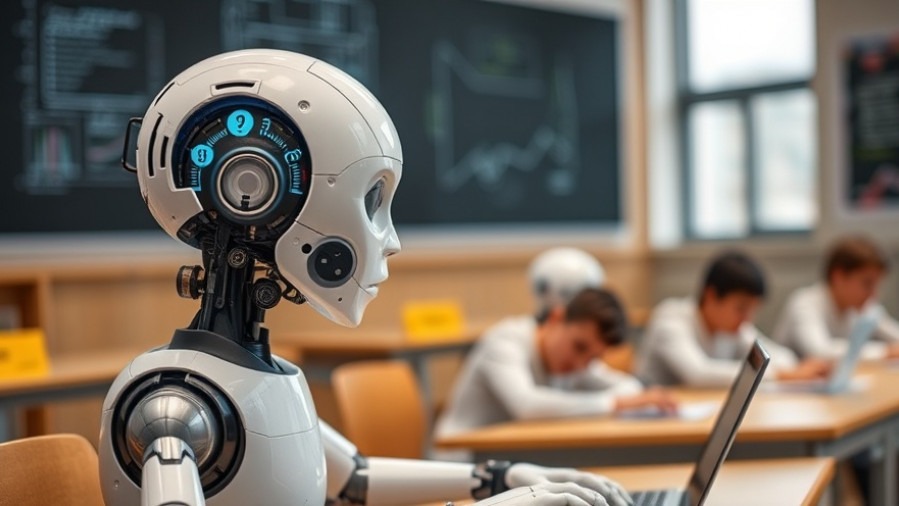
AI Giants Join Forces with Teachers’ Unions: A New Educational Era
In an unprecedented collaboration, leading technology companies are investing millions into teacher training programs to incorporate artificial intelligence (AI) in classrooms across the United States. Major players such as Microsoft, OpenAI, and Anthropic have partnered with educators' unions, notably the American Federation of Teachers (AFT), to create impactful training initiatives aimed at shaping the future of education.
Transforming Education: The Power of AI
With a combined commitment of $23 million over five years, the collaboration seeks to train over 400,000 educators through workshops, online courses, and hands-on sessions at the newly established National Academy for AI Instruction in New York City. Randi Weingarten, the AFT President, emphasizes that this initiative positions teachers at the forefront rather than allowing technology to take the reins. “Human beings, not the machine, are in charge of education,” she asserts.
The Role of Technology in Classroom Integration
As AI continues to weave itself into the fabric of daily life, its integration into educational settings has sparked significant interest. The AFT's partnerships aim to equip teachers with the skills to navigate AI responsibly—covering essential topics around ethics, privacy, and safety. This effort comes amid a national push for tech companies to bolster education through grants and resources, as outlined by the Trump administration's AI Education Task Force.
Potential Risks and Concerns: Is AI the Answer?
While many educators express optimism about AI facilitating personalized learning and reducing workloads, concerns regarding the influence and consequences of corporate involvement remain. Critics argue that such partnerships risk amplifying corporate interests within educational settings. Robin Lake from the Center on Reinventing Public Education voiced apprehensions about the magnitude of control these tech giants might exert if they significantly dictate educational tools and frameworks.
Looking Ahead: What’s Next for AI in Education?
As the education sector navigates this transformative phase, the focus will likely expand beyond simply integrating AI into classrooms. Rather, educators must champion a dialogue that prioritizes ethical technology use, protecting student data, and fostering critical thinking skills. The journey ahead may mirror the evolution experienced during previous technological revolutions in education.
Conclusion: Embrace the Future of Learning
With AI poised to become a critical component of modern education, the stakes are higher than ever. It's imperative that educators remain engaged and empowered in this initiative, leveraging AI as a beneficial tool rather than a hindrance. Teachers are called to advocate for frameworks that safeguard the values of education while steering students toward a promising future.
Now is the time for educators, parents, and community members alike to embrace these advancements and ensure that the integration of AI tools enhances learning experiences enriching the educational landscape for generations to come.
 Add Element
Add Element  Add Row
Add Row 



Write A Comment